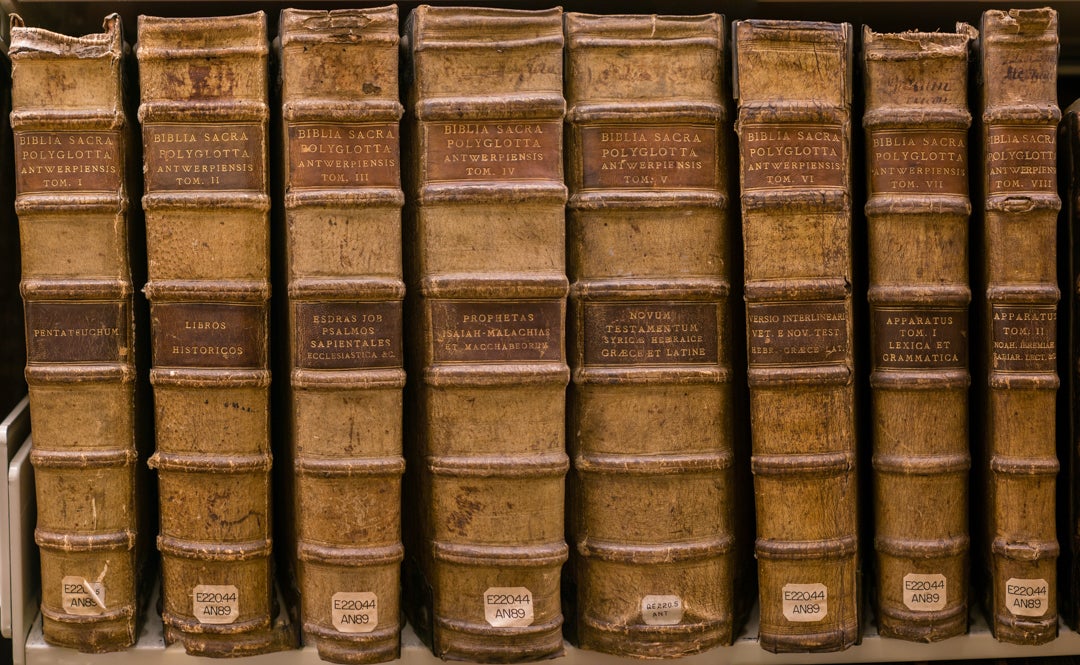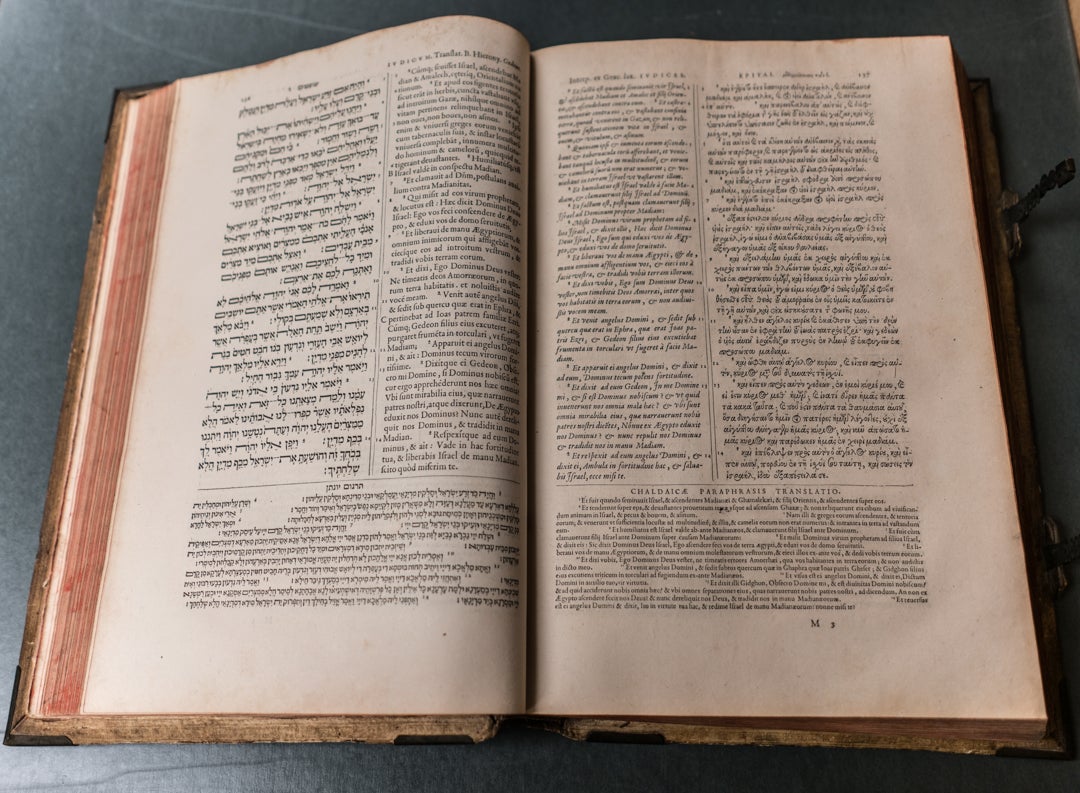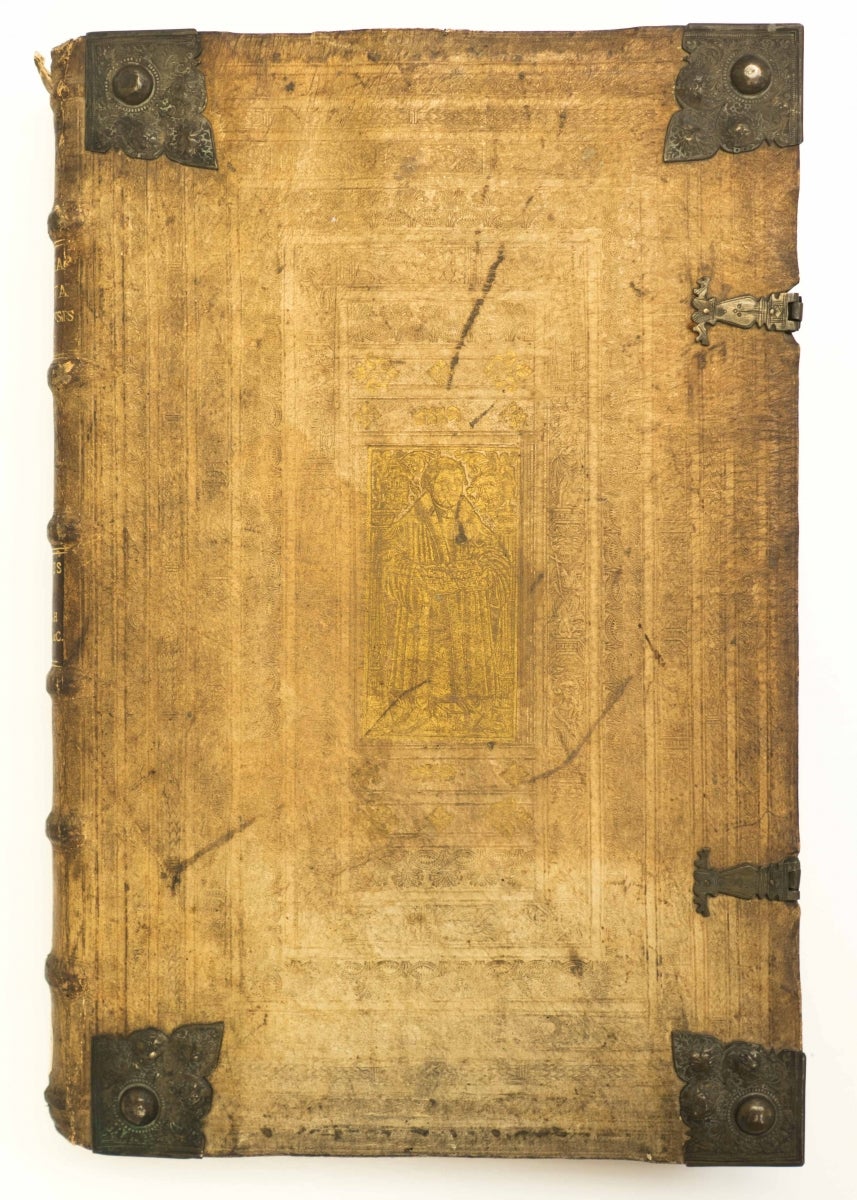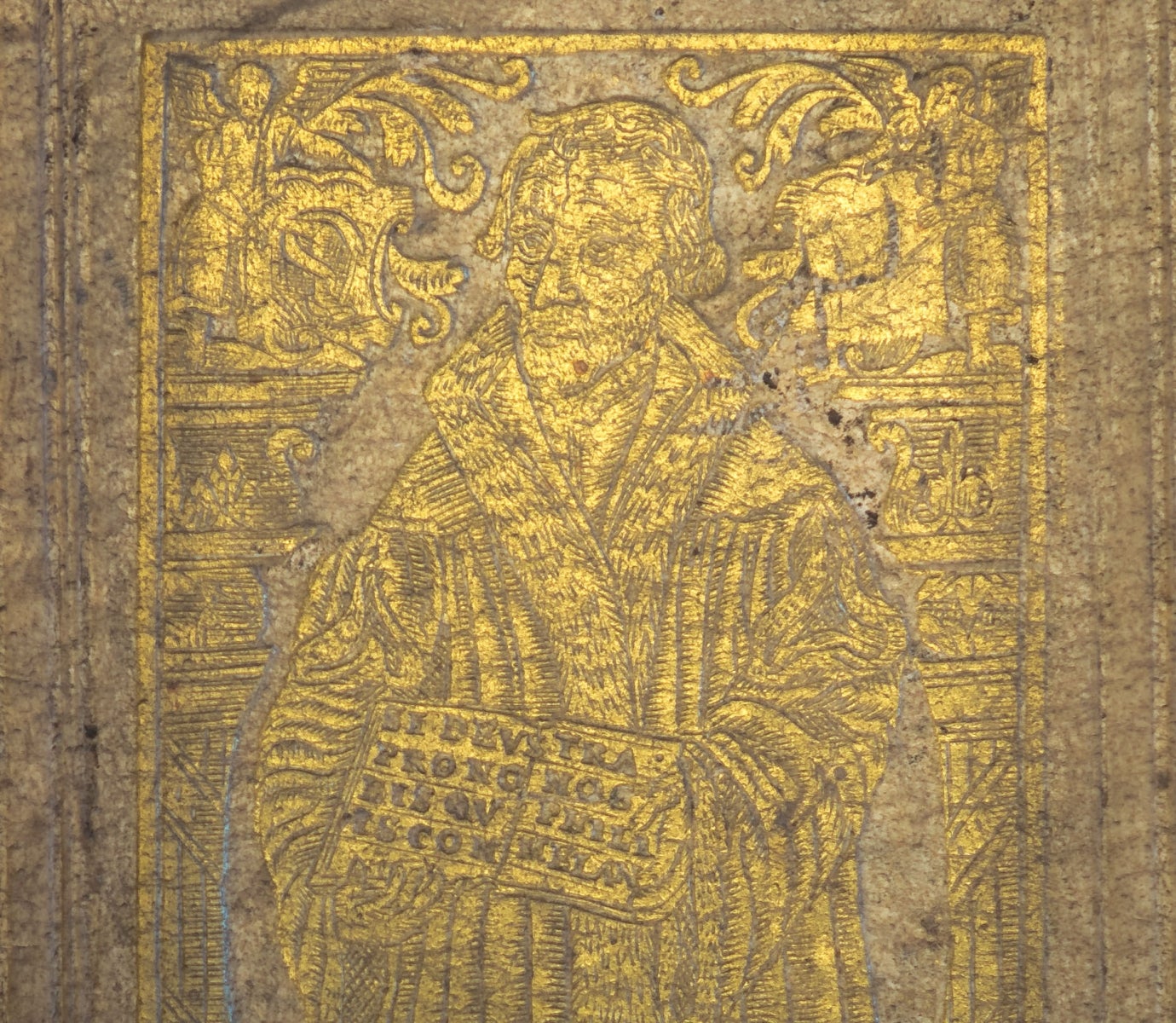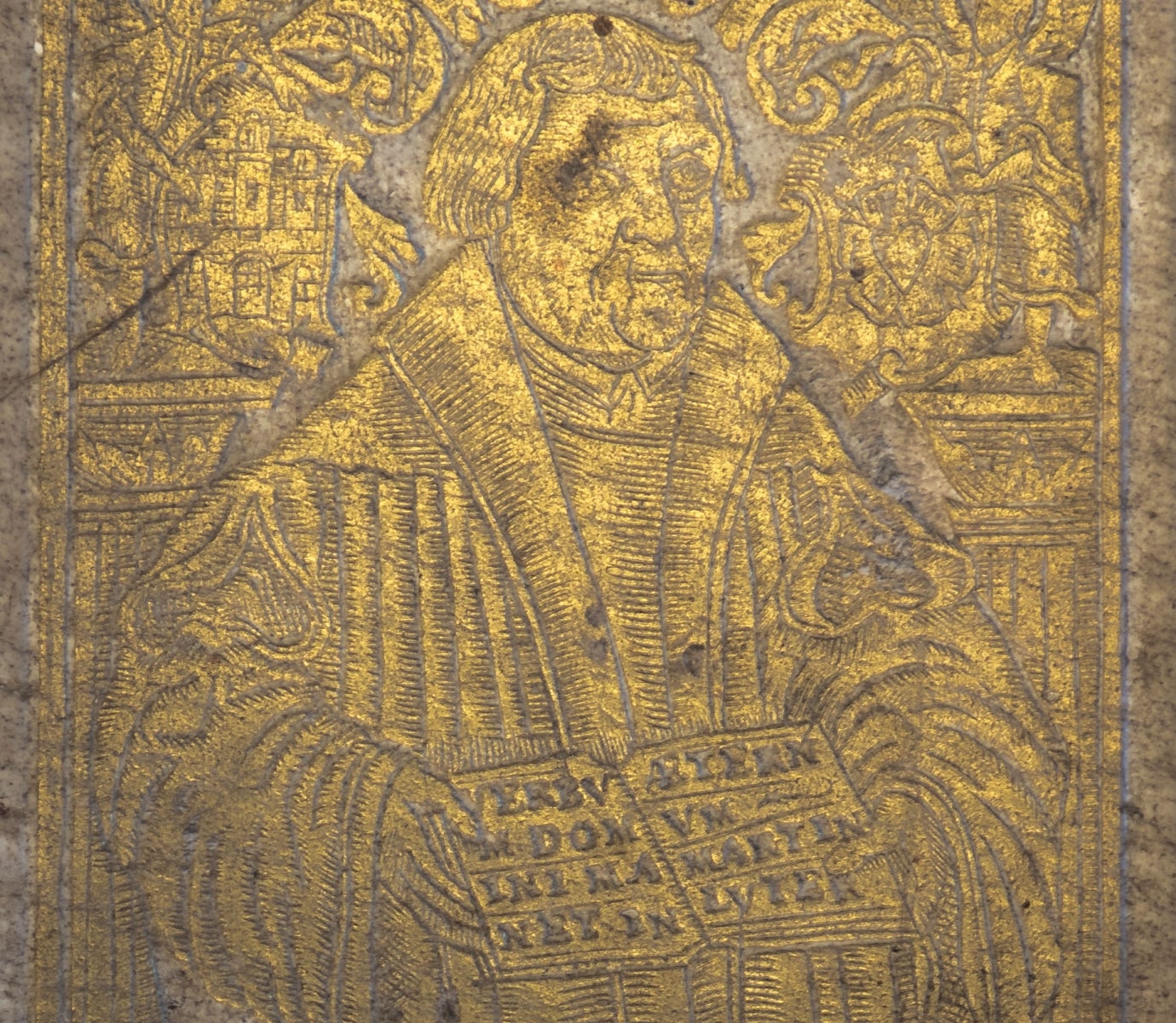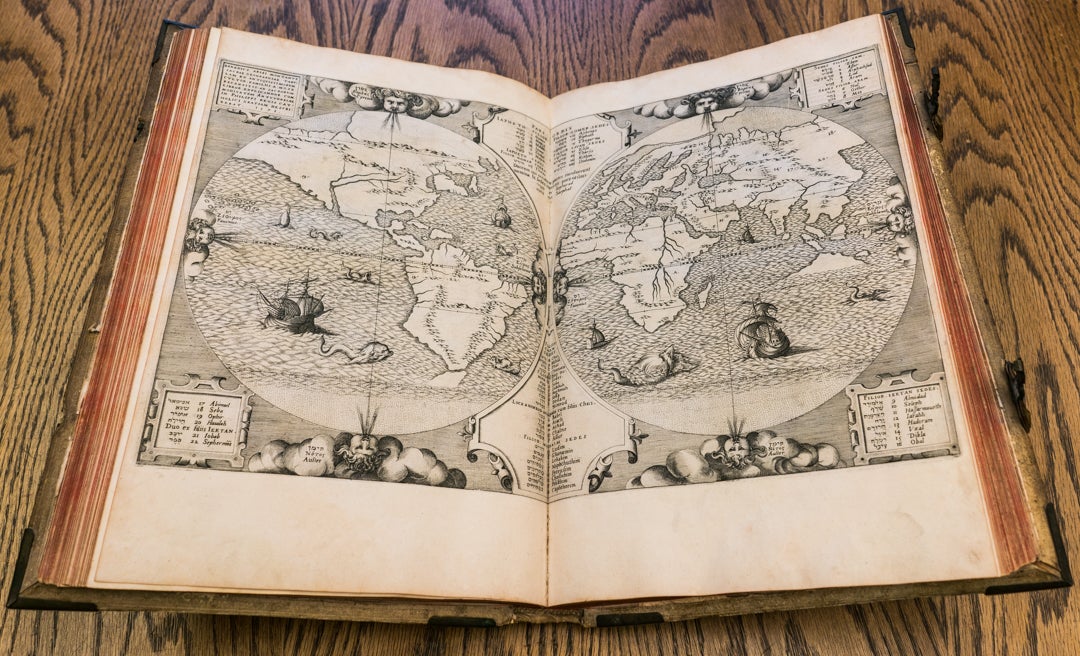As the center for Jesuit scholarship in the 19th and much of the 20th century, the Woodstock Theological Library has come to count a number of literary treasures amongst its holdings. As part of an effort to highlight our collections, we'll be highlighting rare, unique, and interesting items from the collection in a blog series titled: Treasures From Woodstock Theological Library.
As the inaugural post in the series, I thought I would highlight what’s known as the Antwerp Polyglot, or the Plantin Polyglot, and officially: Biblia Sacra Hebraice, Chaldaice, Graece, & Latine.
Published in 1572 by Christopher Plantin under the patronage of Philip II of Spain, the Antwerp Polyglot is known as one of the four great polyglot bibles (the other three being the the Complutensian Polyglot, the Paris Polyglot, and the London Polyglot), all of which are held by the library. Printed at the height of the renaissance, the Antwerp Polyglot is an example of the interest during this period in returning to the original texts of scripture, with each page of the Old and New Testaments containing a corresponding mix of Hebrew, Greek, Aramaic, Syriac (along with latin translations of each) and the official Latin Vulgate, hence the name polyglot (poly meaning many, and glot meaning tongues or languages).
The work is an incredible achievement of printing, bookbinding, and scholarship, with a dream team of linguistic scholars and humanists. Each of Woodstock's volumes, of which there are eight, is housed in a beautiful hand-tooled pigskin or parchment cover.
Interestingly, the covers on our volumes are not original, but were rebound (probably by the original owner) to include gilded stamps of Martin Luther on the front cover and Phillip Melancthon on the back. It’s an ironic choice of covering given the fact that the books were written and printed under the auspices of the Catholic King of Spain, Philip II.
While each volume is interesting, volume 8, the final volume, is of particular interest as it contains a number of incredible maps and engravings showcasing the state of geographical knowledge of the time.
Students and researchers interested to learn more about this incredible work, or any of our historic polyglot bibles, are welcome to come see them first-hand in the Woodstock Theological Library.
Entry by Adrian Vaagenes

